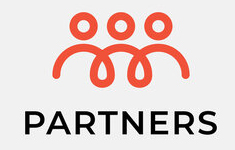
Research Services to Clinicians
1. Healthcare Barcoding: identification of genetic variants in different monogenetic and polygenetic diseases, Polymorphisms (SNPs), mutations, insertions-deletion (InDels), copy number variation (Microsatellite and fragment analysis).2. NGS: Understanding a disease/disorder fingerprint and inner workings through Genome-Wide Association Study, Exome sequencing, Transcriptome sequencing and methylome sequencing.
3. Targeted resequencing: Validation of significant genomic sequences of importance or disease barcoding regions and annotation.
4. Gene Panel-based disease Barcodes: Customized disease-specific gene panels and disease barcodes from available gene panels. We provide
a). Cancer barcode: (Breast Cancer Barcode, Prostate Cancer Barcode, Ovarian/ Cervical Barcode, Colorectal Cancer Barcode Oral cancer Barcode)
b). Eye Barcoding: Genetic Eye Disorders
c). Organ Barcoding: Cardiovascular, Kidney, Liver, Pancreas, Lungs, Brain
d). Metabolic disorders: Obesity, Diabetes
e). Infertility Barcoding
f). Recessive carrier Barcode
g). Rare diseases
h). Blood disorder
i). Neurological/Neurodegenerative diseases or disorders
5. PCR-RFLP: RFLP (Restriction Fragment Length Polymorphism) assay on PCR amplicons (gene or DNA region) to screen specific disease mutations.
6. Advanced PCR method:
a). ARMS (Amplification Refractory Mutation System)-PCR, SSCP (Single-strand Conformation Polymorphism) – PCR for accurate mutation detection.
b). Microsatellite PCR and Microsatellite instability PCR for forensic application and detection of microsatellite instability in tumours.
c). Quantitative Real-time PCR and HRMS (High-Resolution Melting curve analysis) for gene expression analysis, Validation of Differentially Expressed Genes (DEGs) from transcriptome data, Copy number variation analysis, Pathogen detection (TB, HPV, HCV, EBV, Staphylococcus) and viral load determination
7. Advanced Bioinformatics Analysis:
a). Genome analysis for mutation detection (SNPs, In-Del, and their homozygosity/heterozygosity).
b). Phylogenetic analysis for identifying a pathogen’s origin and related variants, deciphering gene and protein relations.
8. Drug repurposing:
Drug repurposing, also known as drug repositioning or drug reprofiling, is finding new therapeutic uses for existing or investigational drugs. InBOL is the frontier in this domain in India. We aim to assist in the development of a quicker and safer therapeutic strategy for different ailments from the therapeutic options that are already available and proven to be safe.
Google Form Link
or contact us at admin@inbol.org
d). Metabolic disorders: Obesity, Diabetes
e). Infertility Barcoding
f). Recessive carrier Barcode
g). Rare diseases
h). Blood disorder
i). Neurological/Neurodegenerative diseases or disorders
5. PCR-RFLP: RFLP (Restriction Fragment Length Polymorphism) assay on PCR amplicons (gene or DNA region) to screen specific disease mutations.
6. Advanced PCR method:
a). ARMS (Amplification Refractory Mutation System)-PCR, SSCP (Single-strand Conformation Polymorphism) – PCR for accurate mutation detection.
b). Microsatellite PCR and Microsatellite instability PCR for forensic application and detection of microsatellite instability in tumours.
c). Quantitative Real-time PCR and HRMS (High-Resolution Melting curve analysis) for gene expression analysis, Validation of Differentially Expressed Genes (DEGs) from transcriptome data, Copy number variation analysis, Pathogen detection (TB, HPV, HCV, EBV, Staphylococcus) and viral load determination
7. Advanced Bioinformatics Analysis:
a). Genome analysis for mutation detection (SNPs, In-Del, and their homozygosity/heterozygosity).
b). Phylogenetic analysis for identifying a pathogen’s origin and related variants, deciphering gene and protein relations.
8. Drug repurposing:
Drug repurposing, also known as drug repositioning or drug reprofiling, is finding new therapeutic uses for existing or investigational drugs. InBOL is the frontier in this domain in India. We aim to assist in the development of a quicker and safer therapeutic strategy for different ailments from the therapeutic options that are already available and proven to be safe.
Google Form Link
or contact us at admin@inbol.org
Our Partners





